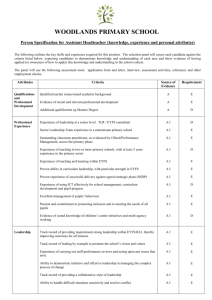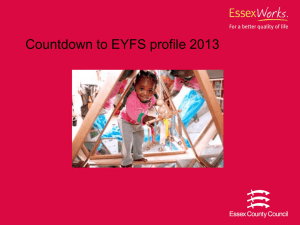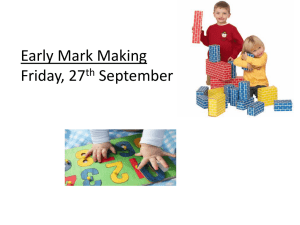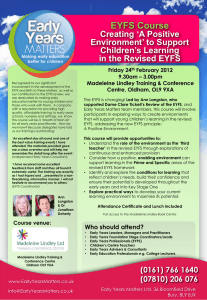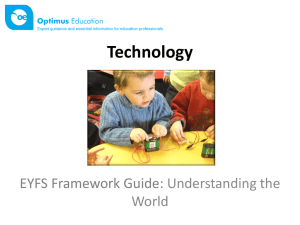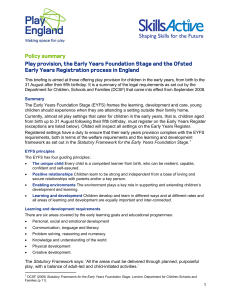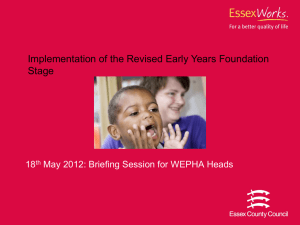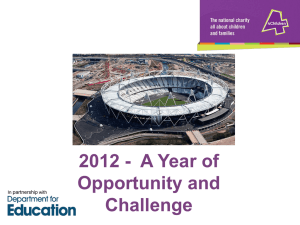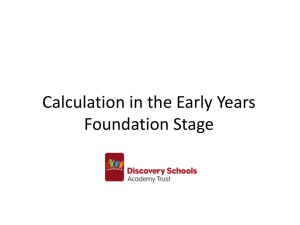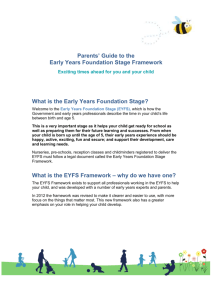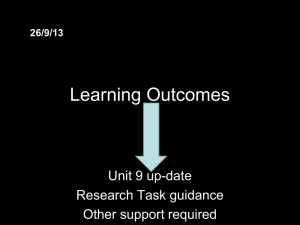The EYFS progress check at age two
advertisement
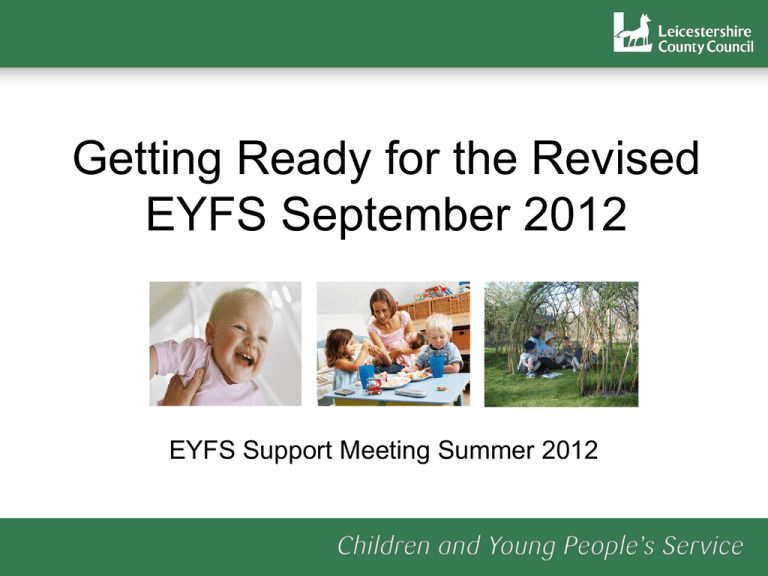
Getting Ready for the Revised EYFS September 2012 EYFS Support Meeting Summer 2012 Aims • To ensure practitioners are familiar with the key elements of the revised EYFS ready for implementation in September 2012 • To network and learn from each other • To share national and local updates Implementing the Revised EYFS Retain resources and systems Building on existing good practice – refinement rather than change www.foundationyears.org.uk Documents Available • Statutory Framework for the Early Years Foundation Stage (DfE) • Development Matters (Early Education) • A Know How Guide The EYFS progress check at age two (ncb) • Check list of changes To follow • EYFS for Parents (4children) • The EYFS Profile 2012 (STA) Summer 2012 Revised EYFS - Key Themes • Safeguarding • Child development, how children learn areas of learning and development • Partnership with parents • SEN and inclusion • Assessment • Early intervention, inter agency working Statutory Framework for the Early Years Foundation Stage • The Learning and Development Requirements • Assessment • The Safeguarding and Welfare requirements The Learning and Development Requirements Section 1 Section 2 • Wrap around and holiday providers • • Prime and Specific areas of learning. Progress check at age two • Individual needs, interests, and stage of development Development Matters A Know How Guide: The EYFS progress check at age two • English as an additional language • Planned, purposeful play through ‘a mix of adult led and child initiated activity’ • The different ways children learn Characteristics of Effective Learning • Early Learning Goals Assessment Taken from Development Matters in the EYFS page 5 Early Education 2012 Development Matters Characteristics of Effective Learning Playing and Exploring, Active Learning and Creating and Thinking Critically support children’s learning across all areas of learning • Activity: Reflection Assessment • The EYFS progress check at age two • Progress from the Start • EYFS Support Meeting Autumn 12 The EYFS Progress Check at Age Two Activity: True or False True / False The EYFS requires that providers carry out a progress check at age two True / False • When recording the progress check , practitioners must use a government prescribed format? True / False The progress check at 2 involves the • • • Childs key person Observational on going assessment Voices of the child, parent and other professionals involved True / False • The progress check should describe the activities and strategies the provider intends to adopt to address any issues and concerns True / False One of the aims of the progress check is to review a child's development in the 3 prime areas True / False Practitioners should encourage parents to share information from the progress check with other relevant professionals, including their health visitor True / False If a child moves between settings between the ages of two and three, it is expected that the progress check would usually be undertaken by the setting where the child has spent the most time The Safeguarding and Welfare Requirements • How do I ensure that I meet all the requirements? Meeting the Safeguarding and Welfare Requirements Meeting the Safeguarding and Welfare Requirements • What are the important changes? • Activity: Scenarios Ofsted Inspection and Regulation from September 2012 • New frameworks for registration, inspection and enforcement • Guidance and frameworks published end June 12 • What Ofsted intend to achieve • Proposed inspection judgements Refreshment Break / Networking
